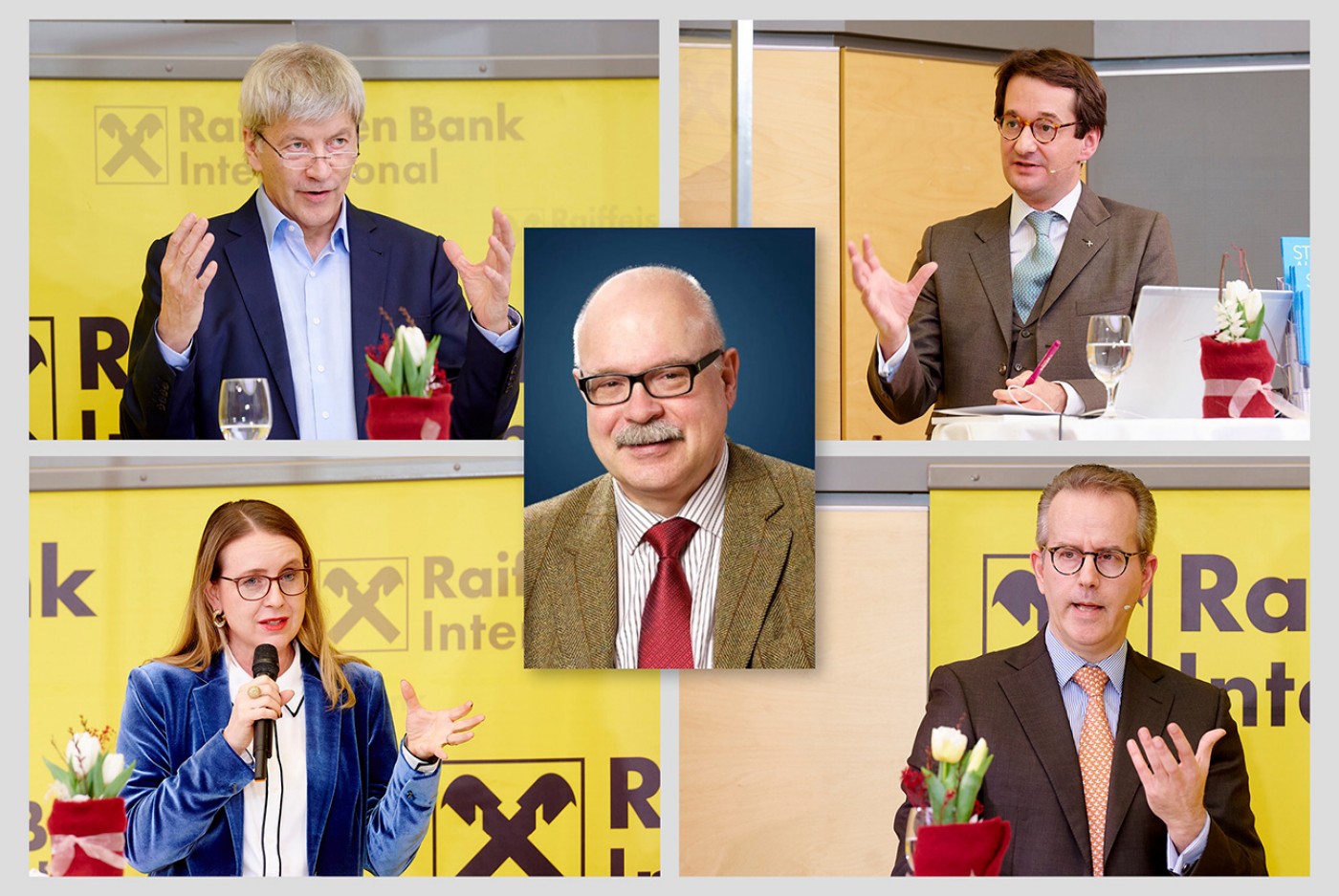02.02.2021 - Geopolitics and geoeconomics in reshuffling: Storms Ahead? Which implications to expect for business and politics? RBI EU-Sky Talk 2022

Hardly a day goes by without news about sanctions, trade restrictions, or monetary competition. Power politics is back on the international agenda, and it influences the way Raiffeisen Bank International (RBI) and our clients do business. With subsidiaries in 13 countries, RBI serves more than 17 million clients across Austria and Central and Eastern Europe (CEE). Geoeconomics has come to affect our operations as clients become targets of sanctions regimes, capital transfer is being restricted, and political and economic risks prompt our clients to adapt or change corporate strategies. RBI has reflected upon these changes and commissioned a group of experts, active in the areas of politics or the economy, to think about the current and future geoeconomic challenges and developments. These were debated within a highly qualified panel discussion in the headquarters of Raiffeisen Bank International.
Moderated by Paul Pasquali, Executive Director Group European and Public Affairs, Raiffeisen Bank International, the panel consisted of Margarete Schramböck, Austrian Minister for Digital and Economic Affairs, Dmitri Trenin, Director, Carnegie Endowment Moscow and chair of the foreign and security policy program, Heiko Borchert, Managing Director, Borchert Consulting and Research AG, co-editor of Storms Ahead and Johann Strobl, CEO, Raiffeisen Bank International, co-editor of Storms Ahead.
Minister Dr. Margarete Schramböck strongly stressed the importance of Europe regaining technological sovereignty. The pandemic uncovered that Europe has lost track in certain areas and that European technological production must be brought back. These areas, which have been identified through so-called Important Projects of Common European Interest (IPCEI) are the production of microelectronics, chips and batteries. Not every great project can be realized alone that’s why the European Union should extend its partnerships with its vis à vis USA and China.
Dr Heiko Borchert defines geoeconomics as the projection of economic power within and across five essential domains – land, air, sea, space, and cyberspace – to achieve political goals. Western governments and businesses alike are challenged. To tackle these obstacles, new modes of public-private cooperation are needed. Furthermore public-private interaction needs to be stepped up to trigger situational awareness and understanding of geoeconomic challenges. Also, one element that becomes critical in today’s geoeconomics environment is “strategic hedging”: A more informed public dialogue on the instruments available is needed to hedge against price risks and against supply insecurity risks.
Dr Dmitri Trenin explained that the 2021 Russian National Security Strategy’s most striking feature is its focus on geoeconomic issues, from the need to completely transform the national economy on a new technological basis, to the critical role of science and technology, to the vital importance of climate and environmental protection for the future of the country. In future, Moscow’s foreign economic policy will be essentially pragmatic, seeking practical economic benefits for Russia. In his conclusive remark Dr Trenin called for a reconciliation between Russia and Europe, as they have been economic partners for a long time.
Dr Strobl thanked all the panel participants for their interesting aspects that have been mentioned. He emphasized the importance of an open discussion regarding European contradictions. If we manage to untangle these contradictions, Dr Strobl is optimistic about moving forward together as a great European economy and society, even in these difficult times.